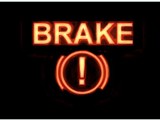There are rare times when the steering wheel vibrates as a MINI Cooper slows down or comes to a a stop. This causes discomfort and anxiousness to the driver. Most MINI owners initially attribute this problem with faulty tire pressure. But what if the tire pressure is at a right level? Then the problem is a warped MINI Cooper Brake Rotor.
Imagine the MINI Cooper Brake Rotor as the white center part of an Oreo cookie. This disc brake rotor is what the brake pads grab to stop the car. The brake pads are like the two dark outer pieces of the same Oreo cookie, and the brake caliper holds the brake pads in one of the sides of the brake rotor. When the driver steps on the brake pedal inside the car, brake fluid is sent to the brake calipers causing hydraulic pressure to squeeze the brake rotor in between the brake pads.
What then causes the “warping” problem? MINI Cooper Rotors usually become "warped" or have an uneven or high spot on the surface due to normal wear and tear. Warped MINI Cooper Brake Rotors can also be caused by the expansion and contraction of a metal disc rotor while driving through a puddle of water and applying the brakes. Worn out brake pads due to metals grinding with each other in the MINI Cooper Brake Rotor also induces uneven grooves in the rotors surface. When the brakes are applied, the caliper and the brake pads squeeze the rotor causing the vehicle to stop.
Since brake rotors are turning with the same velocity as the steering wheel, brake pads will throb inside the caliper as they touch the high spot with a a warped rotor surface. The pulsating will then cause the wheel to vibrate. This vibration can be felt in the steering wheel if the warped rotor is on the front of the car. Vibration is felt when braking on a freeway or when coming to a final stop. Solution involves having the MINI Cooper Brake Rotor removed from the car and "trued."
In this process, a mechanic uses a special piece of equipment to shave off a small layer of the brake rotor to make the surface smooth, "true" or even again. The brake rotor have a limit to how much of the material can be removed or shaved off, and this minimum thickness is stamped on the rotor for the mechanic to see. If the rotor is below minimum thickness specifications, a replacement is needed. Brake rotor warp can cause some damage or premature wear to the brake system. It can cause a safety issue due to loss of control and full stopping power at freeway speeds, and can adversely affect the anti-lock braking system (ABS).
A mechanic should inspect the condition of the brake rotors when he inspects the brakes. A car owner experiencing a warped rotor should tell a mechanic immediately specifically about the existing problem. A visual inspection by the mechanic might not always determine if a brake rotor is warped and in need of truing








